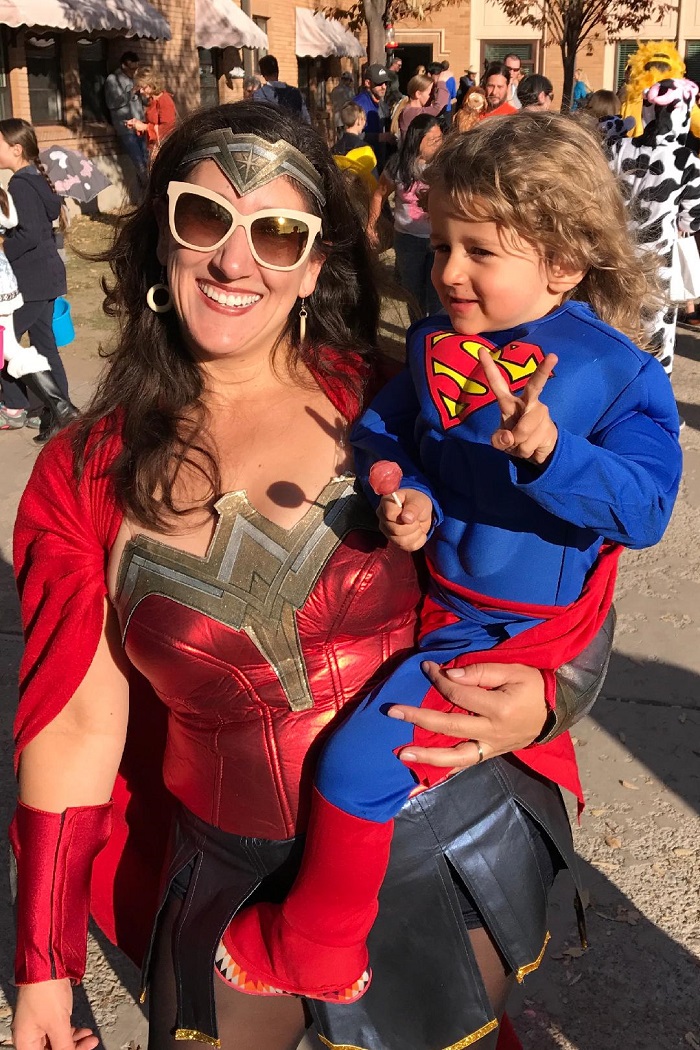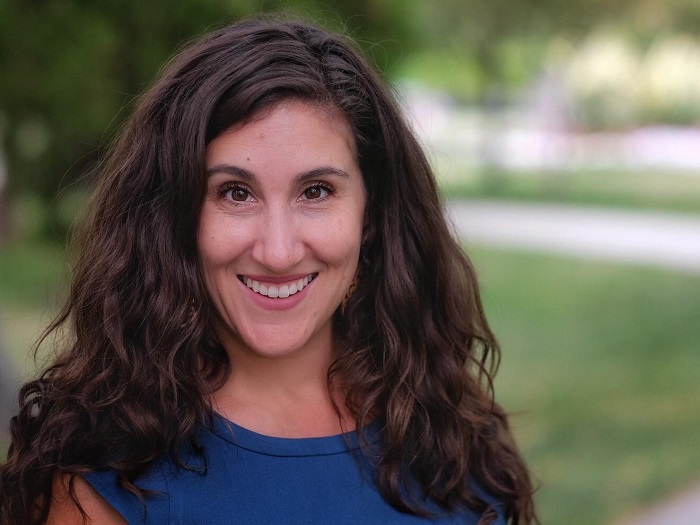
Shireen Ghorbani’s parents were separated during the Iran U.S. embassy crisis made famous in the film “Argo”, and so she ended up being raised by a single mother. She has two masters degrees and works for the University of Utah and has her own family.
Ghorbani is now running for Congress, I have learned, to represent Utah’s 2nd congressional district. Check out why she believes in “health care for all,” a compassionate immigration approach,
freedom of the press and takes a side on so many other issues.
About Shireen
Ghorbani has two masters degrees, one each from the University of Utah, which brought her to the state, and another from the University of Nebraska. She works full-time as an associate director in organizational development and communication in the Facilities Management department at the University of Utah.
“I support… living in a house of shared responsibilities. I don’t make dinner; he gets the crockpot out,” Ghorbani said of her husband. “We both work full-time and I want to demonstrate for my son the importance of having a strong work ethic.”
It was eight years ago when Ghorbani moved to the Beehive State to earn a PhD in organizational communication and policy at what locals call “the U.”
That was the intention, at least.
“I was studying campus sexual assault and in the course of a couple of events, I ended up working in the facilities department,” she said, describing that her work is in “communications” and “organizational development.”
Ghorbani grew up just outside of Bismark, North Dakota, but her father is from Iran. Her mother, who primarily raised her, was an English teacher at the local college.
“She was always an advocate for social justice and a person who was really interested in the world,” Ghorbani said.
Talking with Ghorbani, it was clear that she and her mother had a powerful bond; Ghorbani was an only child and her father left the family when she was young.
“We grew up working-poor,” Ghorbani said. She remembers her mother pulling out the bills and writing out checks at the table. She described the “household” in which she grew up as the “kind” in which her mother would “budget how much gas (they) could afford that month… and just keeping a roof over (their) head.”
“Things were pretty tight,” she said.
Ghorbani also grew up without health care; her school employer did not offer healthcare.
“It was a big stressor in my life,” Ghorbani said.
It was in Iran where Ghorbani’s parents met, when Ghorbani’s mother was “looking for a little adventure,” Ghorbani said. They got married in the front room of the farmhouse where Ghorbani’s
mother grew up, having returned to the United States. That happened only after they, in an age before social media and widespread Internet, managed to re-connect. Ghorbani’s mother “was evacuated out of (Iran)” during the 1979 U.S. embassy crisis.
“I have her diaries where she talks about sending letters and trying to figure out” how to reconnect with Ghorbani’s father, Ghorbani said of her mother.
When her father left her, he was dealing with alcoholism.
Ghorbani herself is married to a man today.
“I feel incredibly lucky to have a true partner, my husband, who stands next to me and is a clear example of the kind of man that I hope my son grows up to me,” she said. “That’s someone who’s kind, someonewho is … available, hard-working, ethical, takes seriously his position in life.”
“I’m very proud and lucky to be married to an educator, a person who is giving his time back, into the world,” Ghorbani added. “That feels very powerful to me.”
Ghorbani met her husband in her first semester as an undergraduate, at St. Cloud University in the Minnesota city of the same name. She wanted to serve in the Peace Corps after college.
“He said, ‘I want to do the Peace Corps, too,’” Ghorbani said. “The next thing we knew, we were engaged and applied as an engaged couple, so we planned a wedding and that was in 2003. Man, it’s many moons later and we are still going.”
Seeking Congress

Ghorbani has not only filed paperwork, but has begun campaigning and the initial round of fundraising. And she hired a campaign manager who will start at the end of the month, Ghorbani said.
“A couple of things that have really influenced my decision,” Ghorbani said, “is being the daughter of an immigrant and thinking about the opportunities and ways… in which people trying to come into this country struggle.”
Also, “what’s right and seems wrong,” she said. As a Peace Corps volunteer, she served in Moldova from 2003 to 2005, learning about “gender and development,” with a focus on “anti-violence campaigns and the ways poor countries influence impact in terms of… economic development.”
“That was huge for me,” she said, remarking “how lucky we are to live in this country and how lucky we are to be born in the United States.” Ghorbani volunteers on the board of the Rape Recovery Center.
She also said that “Donald Trump (becoming president) made me think that anyone can do this.”
“I’m really just deeply disturbed, too, by the well-documented behaviors of our president,” Ghorbani added. “I am just deeply, deeply concerned when we don’t take violence against women seriously and I think it’s time for us to start doing that.”
And, when her mother died of pancreatic cancer last year, she was able to do so “with dignity” because of Medicare.
“I didn’t have to sell her home,” Ghorbani said. “We didn’t have to make those really tough decisions that families have to make with health care. … I think of families and the terrible situations they are in because our government cannot make decisions and find solutions on health care and it’s unacceptable.”
Among the “many things” that Ghorbani is worried about in Trump, she is highly worried about Trump’s hostility to the press, mentioning his use of the term “fake news.”
“The actual product of a free and fair press is at the cornerstone of our democracy,” Ghorbani said.
“Truth matters. … A lot of these schools aren’t teaching… journalism classes.”
“I’m a person who is interested in working towards solutions,” Ghorbani added. “You should be able to find full-time jobs in this country where people are able to make ends meet; where people can provide for themselves. And if people choose to have a family, they can provide for themselves.”
She also said that the term “blue dog” is “hard” for her because of what it has meant in terms of politicians’ belief in “military intervention.”
“I do take the way that our country engages in endless war pretty seriously,” Ghorbani said.
She then said “I came up as an undergrad in Minnesota where I had the honor of being represented by Sen. Paul Wellstone,” who was “out there fighting for jobs” and for students to “not be in debt the rest of (their) life.”
“I’m inspired by those who fight hard on the side of working Americans,” she added.
Wellstone was in the Senate from 1991 until 2002, when he died in a plane crash.


